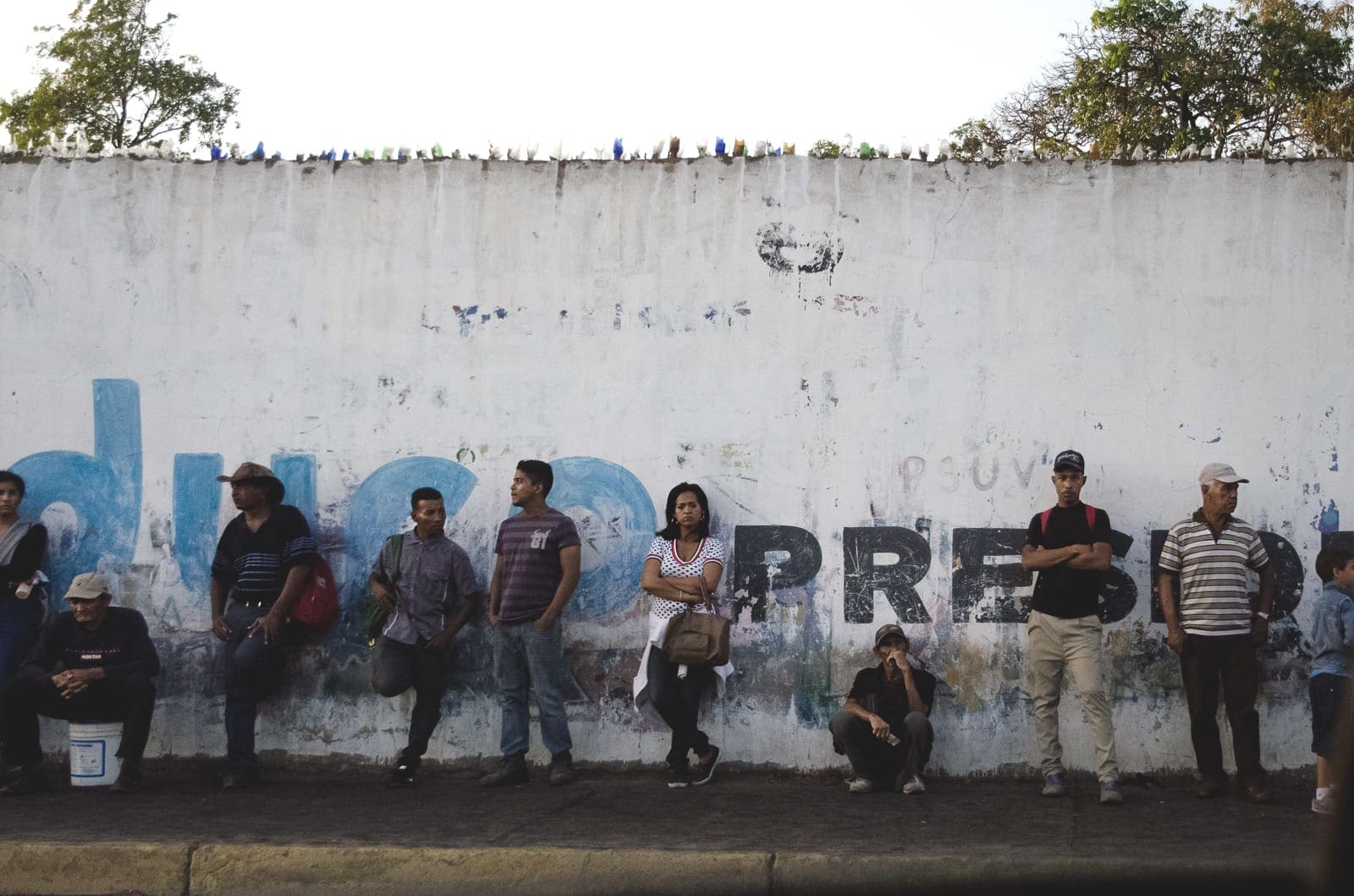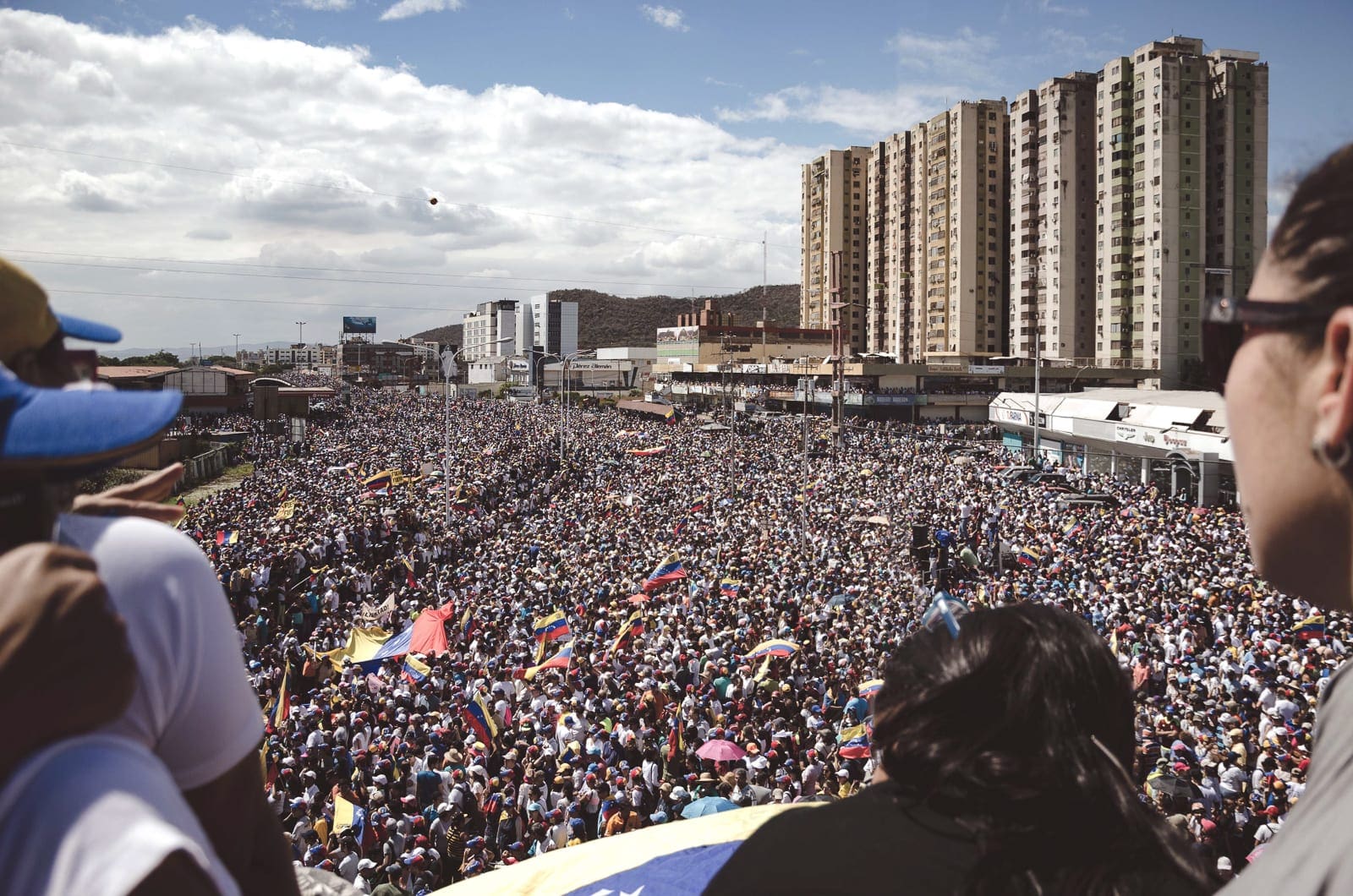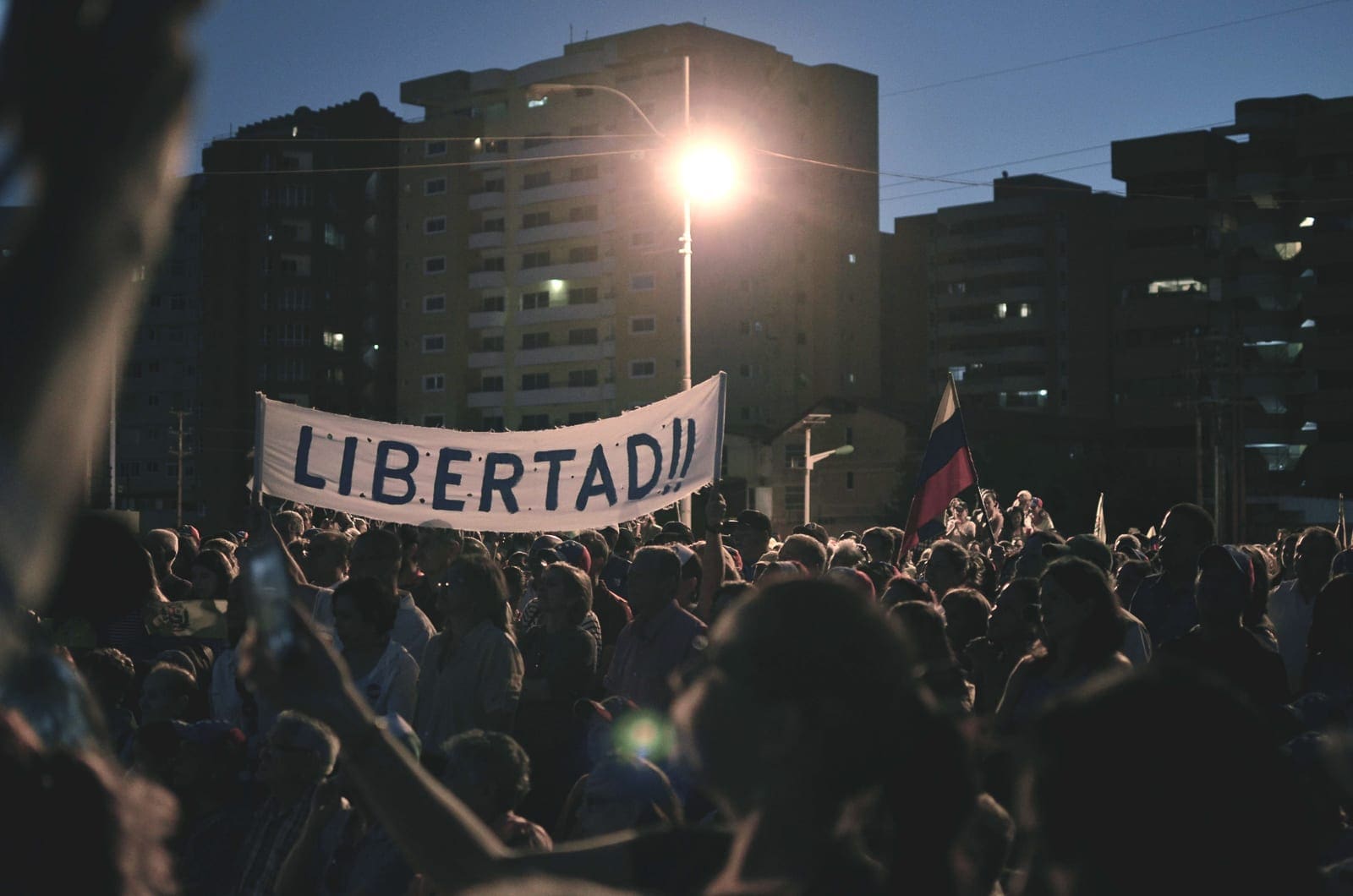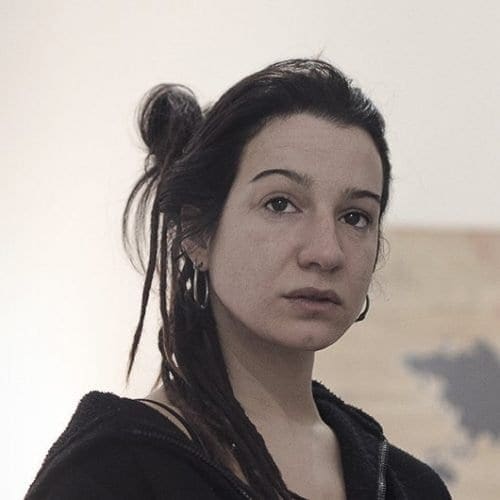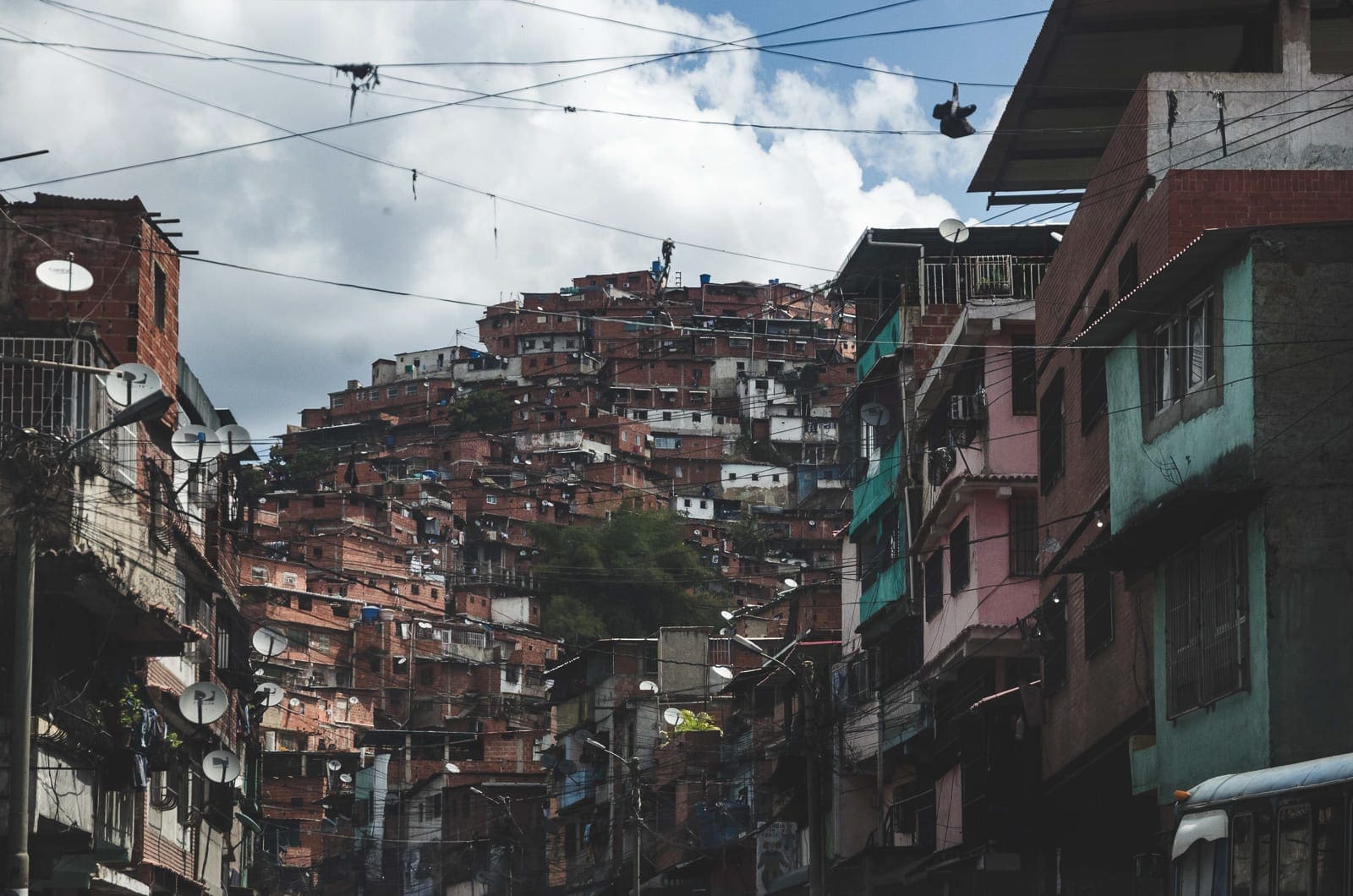
January 2019
After 72 hours of travel, three airports, and exhausting hours of waiting, Venezuela is finally here. Jessica’s emotion: “Do you feel the air? This one has a different smell, the same as when I was a child.” She has already been missing from his second home for four years.
This time she asked me to go with her. She is trying to take over the management of the hotel she inherited from her grandparents, where she left her fondest memories when, with the worsening economic crisis, she was forced to flee to Italy.
It is evening when they come to pick us up. One last drive and we are home, in Lecheria, a city that remains, despite everything, among the richest in Venezuela: from here, the oil companies have never left.
The car shuffles along the patched road. Humid, hot, heavy air. I don’t smell anything in particular. The sun goes down and the city remains suspended in darkness. The main street is lit only by the traffic lights, and the headlights of old cars from the 1970s still on the road. Ghost streetlights wait in vain for new bulbs. It is barely nine o’clock. The streets are empty and silent. The open pub can be counted on one hand. Only buildings and houses, protected by high walls surrounded by electric fences.
A country torn apart
These are the scars of Venezuela, the victim of a crisis that has been crushing the country since 2013, despite having the largest oil and mineral resources on the planet. Is it the mismanagement of wealth, first by Hugo Chavez, the father of the Venezuelan revolucion, then by his heir Nicolas Maduro? Why did the naive idea of the revolution – of helping workers and the poorer in a country extremely unequal – turn out to be a catastrophic failure? The forced nationalization of industries, the collapse in the price of crude oil and the growing corruption have led to the collapse of the internal economy. In a country without agriculture and now without industry, completely dependent on imports, hyperinflation has become a condemnation of impoverishment for a very large section of the population.
Today, Venezuela is split in two: on one side a population at the end of its tether, which has lost everything, including hope; on the other, a lucky few who choose to stay and keep believing in a possible recovery. Jessica is here to try to restore the Jupiter, her family hotel. The structure, left to be managed by the employees for years, is in very poor condition. Renovation work has stopped in the lobby and the rest of the building appears to be abandoned. There are no more televisions, kitchen utensils, towels, or even electric cables: easy bargaining chips for a handful of coins. The bare corridors, stained walls and yellowed blankets make the four-star hotel a desolate place, the mirror of a country in collapse.
Jessica did not expect it. She suffers the blow. But she remains confident: in the afternoon she has a meeting with an executive of PDVSA, the national oil company, to discuss renting out the entire hotel to its employees, thus turning it into temporary housing.
The Jupiter Hotel is located just outside the centre of Lecheria. To reach it, every morning we leave the good neighbourhoods, oases of gigantic condominiums hidden among tropical vegetation, villas with pools, caretakers and air conditioning, where one can still boast a semblance of normal life.
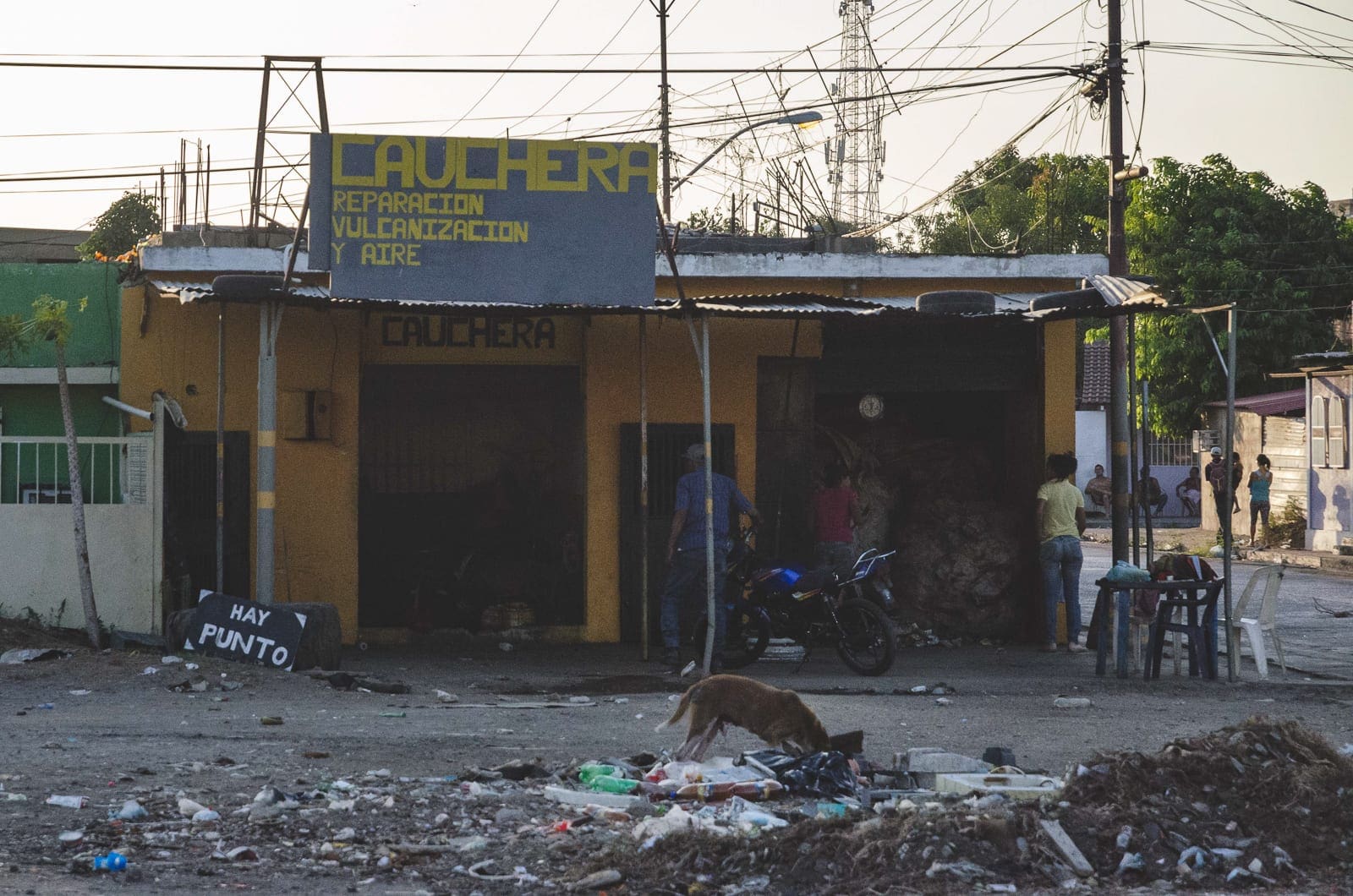
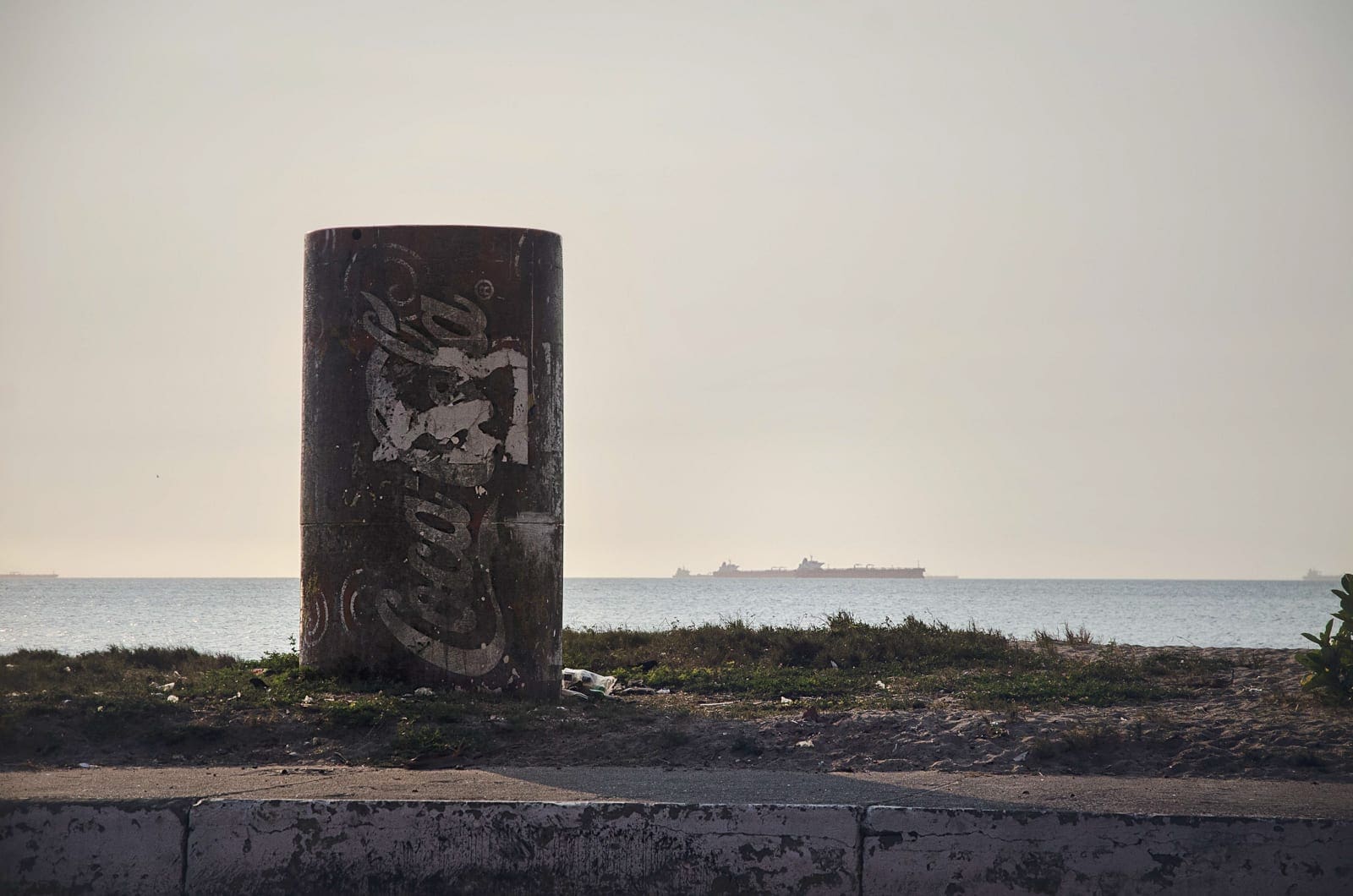
The Maduro Diet
Just outside the golden enclosure, however, everything changes. The awakening is among crumbling buildings and populous houses already oppressed in the summer heat. Here you can see different people trample the streets. The impression is that everyone is strangers to each other if it weren’t for that tiredness that unites their faces. Every day you see endless colas. People wait under the sun to collect a bit of the cheap food dispensed by the government, medicines, gas and – always more frequently – water. Hyperinflation starves the country, manipulates prices and currency, and devours salaries and livelihoods. The sueldo minimo, the basic salary, is equivalent to five kilos of rice. Withdrawals at the bank cannot exceed 500 bolivares: everything in Venezuela is paid for with a credit card accompanied by an ID. I’m not Venezuelan: to buy anything I have to top up Jessica’s card from Italy, she changes euros into dollars. Nevertheless, it’s hard for us too. The only thing you can pay for in cash is petrol: a full tank costs only 2 bolivares. A kilo of rice requires 5,000 bolivares.
Dozens of shops are closed, those that are open offer items that only a few people can afford. Chips, sauces and sweets are always on the shelves, while basic necessities – such as cans of concentrated tomato sauce – are rationed: a maximum of four per person. The water purification system is malfunctioning, a yellowish, undrinkable liquid gushes from the taps, continuous blackouts condemn the village to darkness for very long hours. ‘It’s the Maduro diet,’ jokes Daniel, the hotel’s handyman. His voice barely masks the sadness. I look at the city through the windows of his ramshackle red jeep; Jessica handed me over to him so I could move around safely. Daniel advises me to keep a low profile: ‘To take photos can be dangerous,’ he keeps telling me. I have to settle for a car window with the glass half-up: this is my window on Venezuela. I ask Daniel if it is always the Maduro diet that drives dozens of kids to the hotel gates every day, begging for water: they show up with recovered bottles, often smelling of fuel. You could give them more than just water: “But if we help ten today, tomorrow twenty will show up, then thirty. We don’t have enough for everyone.”
We leave the chaotic traffic of the center for humble huts scattered along dusty streets, people rummaging in the garbage: “Most of them go out at night”, says Daniel. “They are ashamed, they do not want to be seen or recognised”. But the sun is still high, hunger has no timetable. Continuous police or military garrisons control the roads in and out of the city: ‘Even they cannot be trusted,’ says Daniel. “They are paid so little that they will do anything for a handful of dollars”.
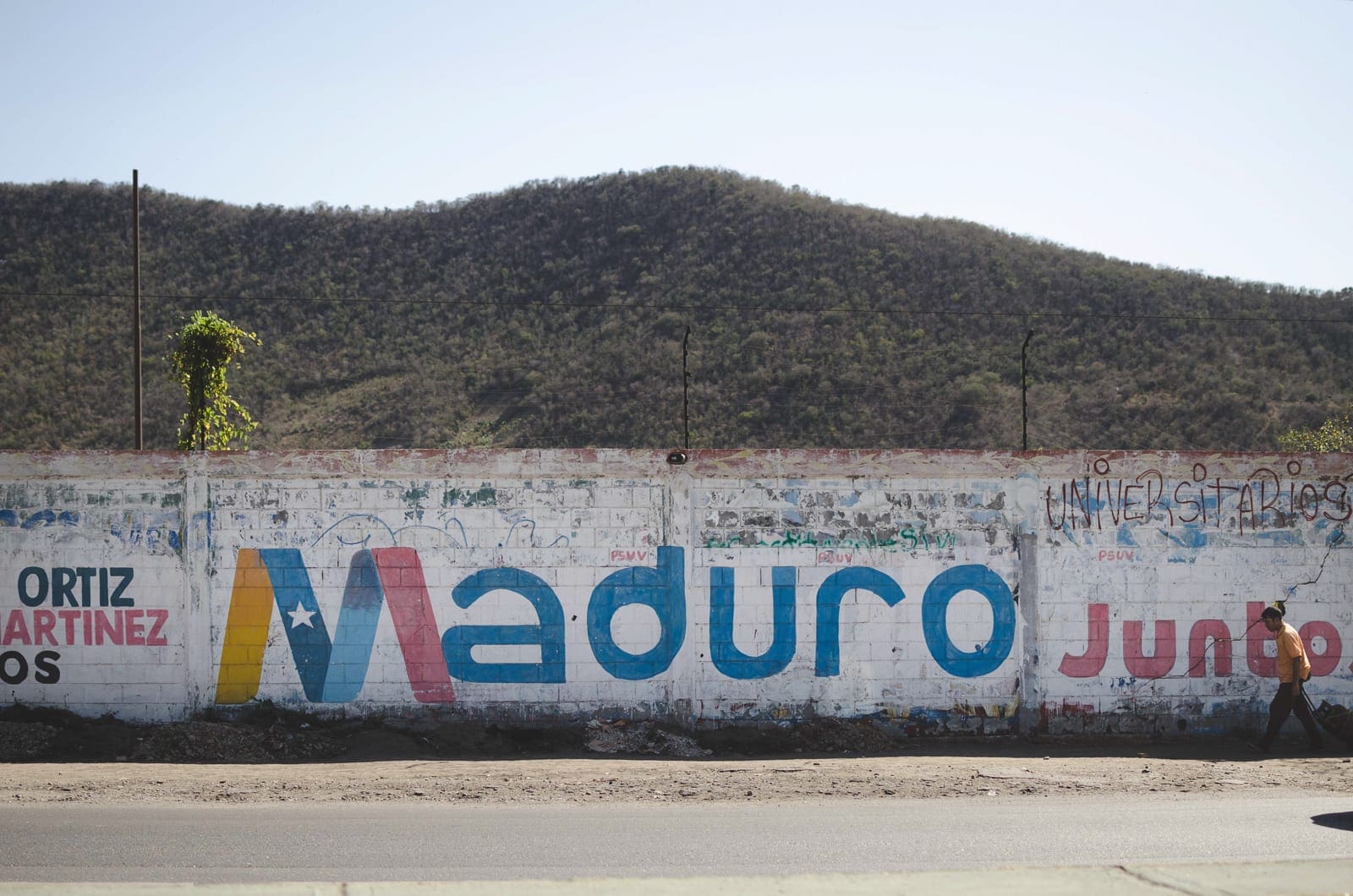
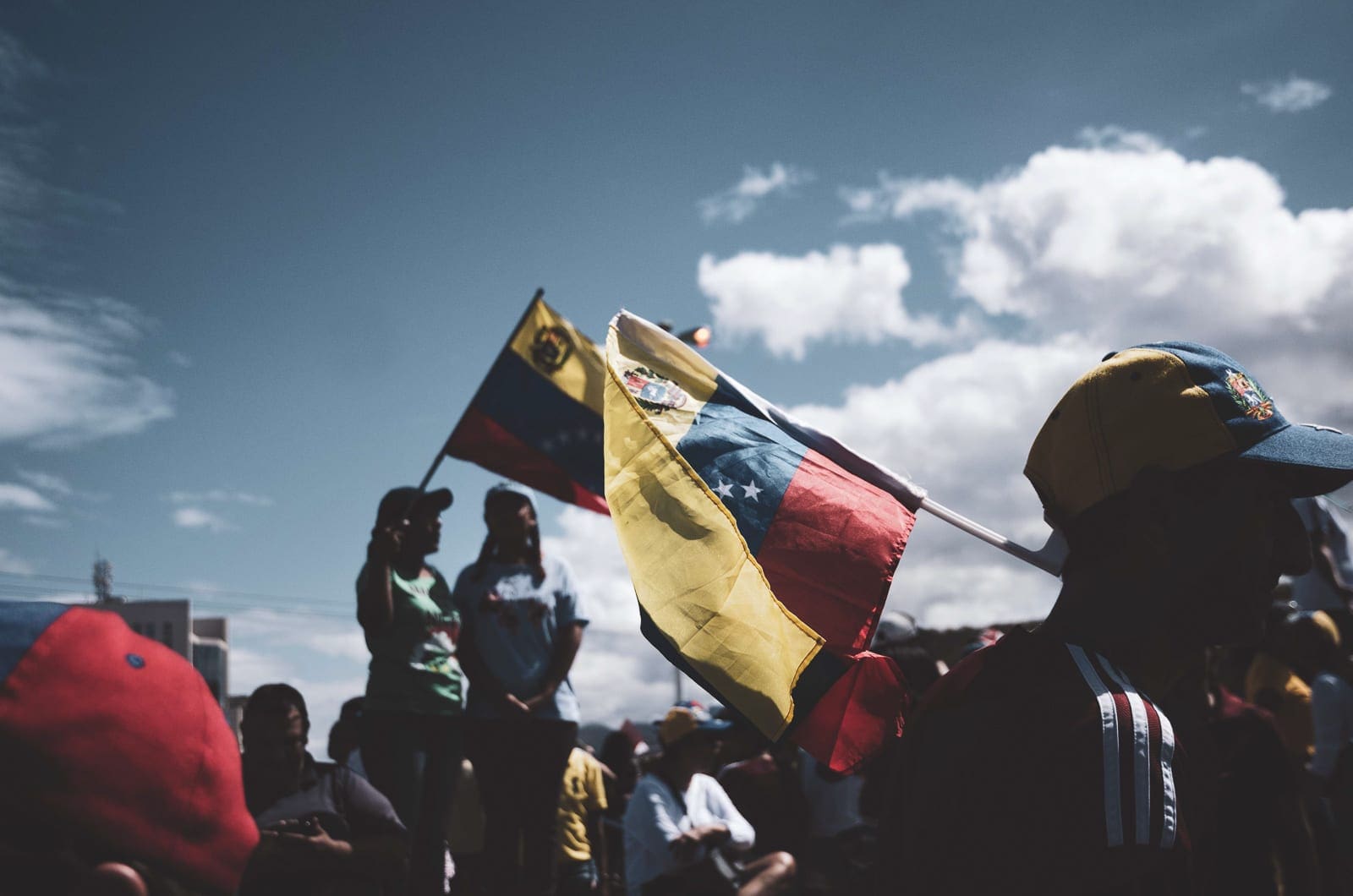
In the sad heart of the barrio
We reach the barrio la Aduana, one of the many barrios surrounding Lecheria. Norma, a trusted hotel employee, lives here. She opens the doors of his house to us, a small brick structure with a tin roof, cosy inside if it weren’t for the suffocating heat. Electricity and water have been missing for four days: ‘I can’t even offer you a coffee,’ says the woman, as we sit in the back of the house. A slight breeze struggles its way over the high concrete protective walls. Stuffed on the bottom are all kinds of objects, piled up between pieces of sheet metal and empty water tanks. Norma makes us sit down and begins: “And finally Chavez arrived. Someone who said exactly what was on my mind. He walked the streets, and talked to people. We learned to love him and he freed us from imperialism. At first, the government gave us houses, food, and money, without asking for anything. I could not imagine that this would condemn us to starvation”.
She shows me the clap, the pantry of basic food that the government sends to families: a few packs of pasta, rice, cornmeal, two litres of oil, legumes such as lentils or beans and, sometimes, vinegar. One envelope per family, plus a bonus of 800 bolivares. “Now they give us so little that we cannot eat daily. The salaries are too low, we earn more by selling under the counter on the street… Many are content with this little food and government cash bonuses. That’s how they control us, with hunger. We believed in a ransom, and instead…”.
He takes me through the streets of her barrio. The house is next to the river, which has become a stagnant rivulet, smelly from the rubbish, overlooked by small brick houses, in contrast to the soft music and roar of cars. The Caribbean summer pushes you to stay outside, in the shade of the doorway. The only busy ones are the children, tied up and transforming plastic bags into kites. They watch me curiously. My hair, my clothes, the colour of my skin: everything about me is out of place there. A local lady starts calling me, asking me to go into her house: ‘Esta se cae!‘ She has a worried tone. “Esta se cae,” she repeats excitedly, pointing at the large cracks splitting the walls. “Y con la Iluvia entra agua, esta se cae”. I don’t understand why, then I realise: dressed well and with my camera bag over my shoulder, she mistook me for someone from the government and asked me for help. But when I tell her I’m not, disappointment slips across her face.
And nothing hurts, poisons, or sickens as much as disappointment.
Here in Venezuela they know it well.
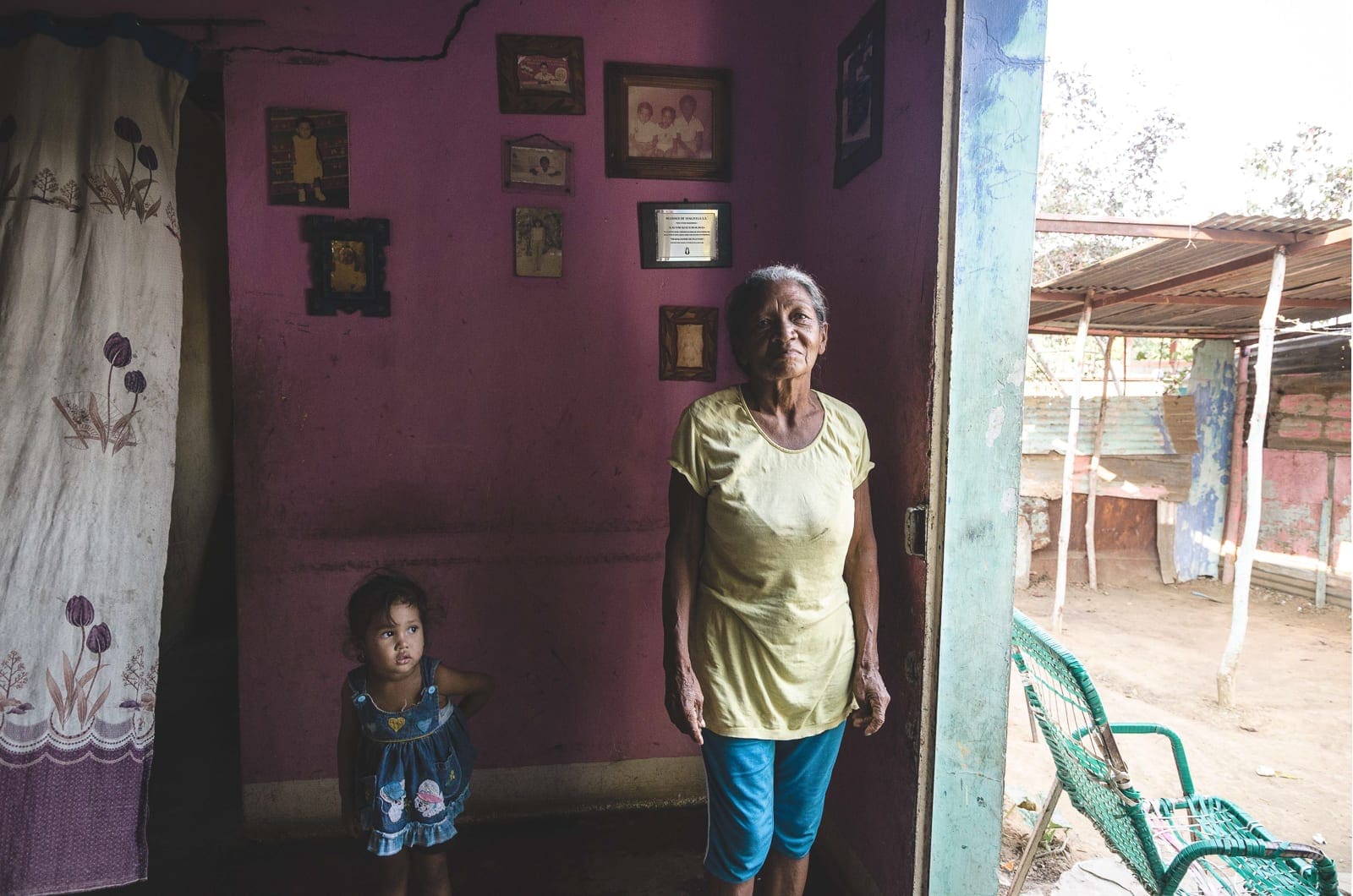
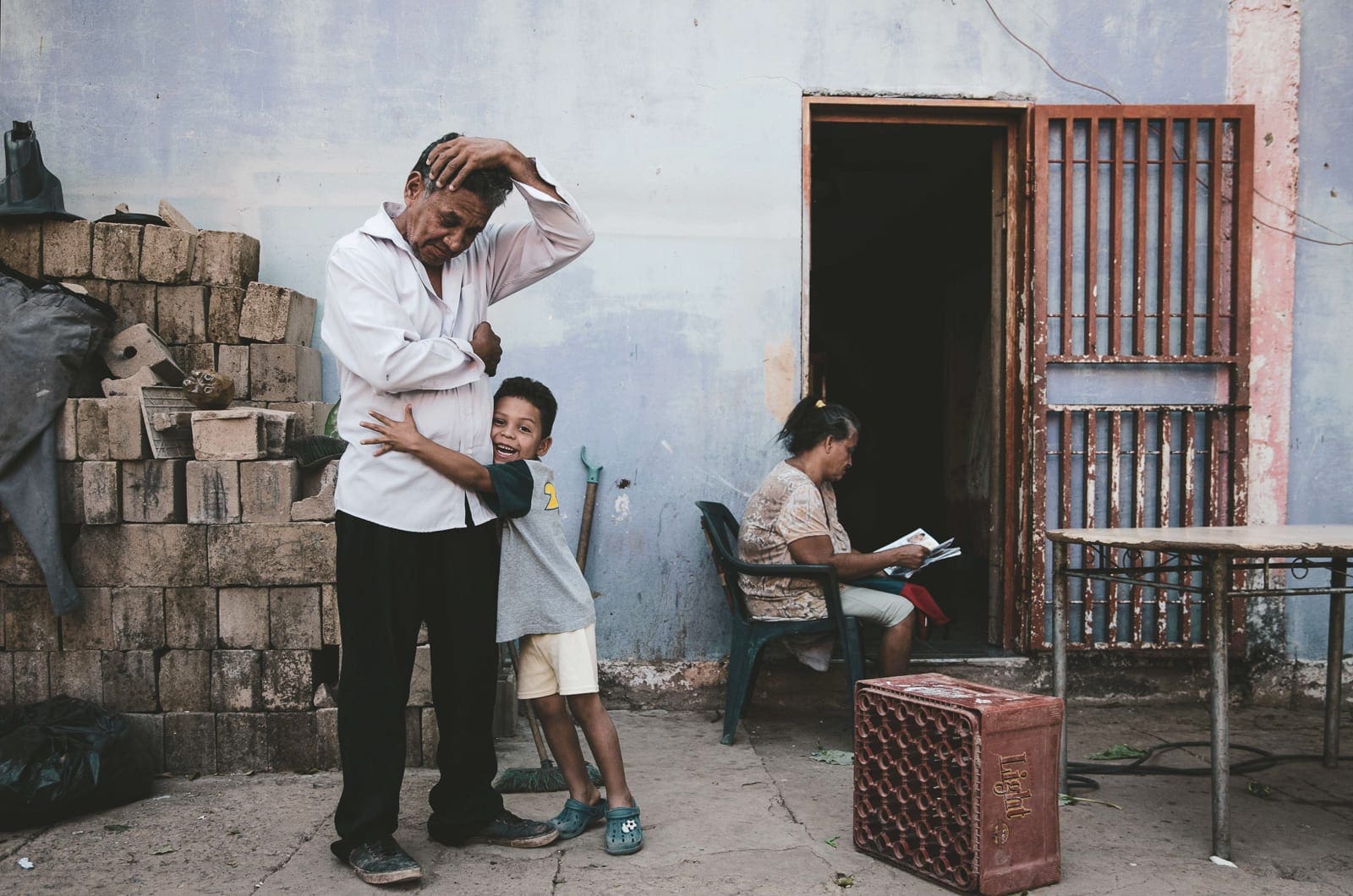
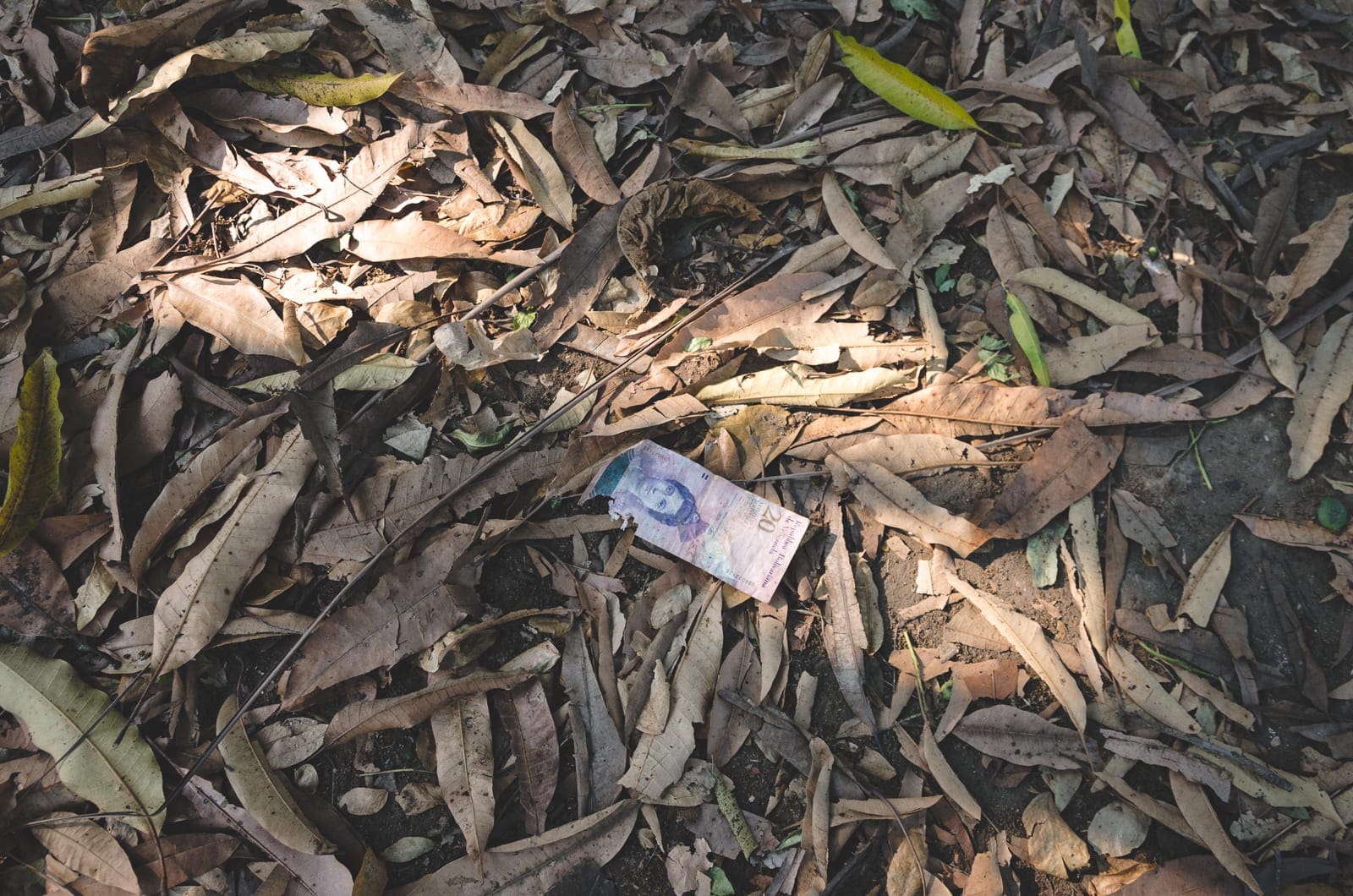
Disillusionment
Chavismo and its revolution have been told as a form of redemption for the people. They deluded people, but the illusion then turned into anger, to the point of exhaustion. As a result, the main cities became the scene of continuous demonstrations that erupted into violent clashes. The armed forces brutally repress the crowds. At the end of the day, all that remains is the body count and the density of fear. For Maduro there is no doubt: the USA with its sanctions, big business and the far right are always responsible. All imperialist forces, united to destroy the revolucion, while the country despairs of real change.
Yet, on January 12, 2019, a different demonstration fills the streets of major cities. A new figure in Venezuelan politics, Juan Guaidò, challenges the Maduro regime: an unusual twist, the media interest draws attention to that land across the ocean. Some international institutions take sides and allow Guaidò to proclaim himself interim president. The armed forces let the parade pass and the government seems to be in trouble for the first time. Perhaps this is an epochal turning point. Jessica does not join me in the rally. She prefers to stay at home: she does not want to show herself openly against the current government. She fears for her business. So she accompanies me near the procession, hears a couple speaking Italian and introduces me as a reportera.
Marco, an Italian now rooted in Venezuela, and his partner Claudia offer to help me: ‘Someone will take the truth out of the borders,’ they say. So I find myself wading through the crowd with these makeshift friends: ‘No quiero bono, no quiero clap, lo que yo quiero es qui se vaya Nicolas’, shouts the tide of bodies crammed into a few kilometres of asphalt. Only in Lecheria, thousands of people from all walks of life stand side by side for a common cause. They are euphoric, everyone is, and so here I am sharing that wave of singular hope as if a years-long standstill could be about to resolve itself.
By nightfall the demonstration is over. The crowd thins out and rumours start circulating of the first clashes in a nearby barrio. On my way home I see the thick smoke from burnt tires mingling with the black blanket that breaks the horizon at every sunset. Jessica is there waiting for me, worried about my delay. She has been following the demonstration on social media, while the television is still showing the puppet procession engineered in favour of Maduro. The happiness is in her eyes: she senses that something is moving. How could we have imagined how wrong we were? The dispute for control of the country will continue for a long time to the detriment of the population and its frustrated hopes.
Upon returning to Italy, I left behind a country still reeling from fear, constant blackouts, disinformation, disorder, hunger, and international disinterest. The fleeting party is over, along with the illusion of renewal.
Two years have just passed since my trip to Venezuela. Jessica also returned to Italy. I often ask her about Norma, about Daniel, about her land.
But she still lowers her eyes: ‘Nothing has changed‘.
